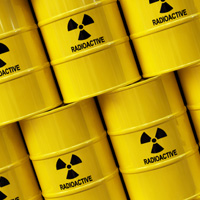-
Grants
8
-
Total Awarded
$6,620,000
-
Years
1999 - 2018
-
Categories
Grants
Founded in 1985 by journalists and scholars to check rising government secrecy, the National Security Archive (NSA) combines a unique range of functions: investigative journalism center; research institute on international affairs; library and archive of declassified U.S. documents; leading non-profit user of the U.S. Freedom of Information Act (FOIA); public interest law firm; global advocate of open government; and indexer and publisher of former secrets. NSA conducts systematic and targeted use of FOIA and Mandatory Declassification Review processes to open historic and current policy documents from U.S. government files on nuclear issues including command-and-control of nuclear weapons; presidential decision-making on nuclear use; the North Korean nuclear program and negotiations; the new “modernization” nuclear arms race between the U.S. and Russia; at-risk international nuclear agreements ranging from the Joint Comprehensive Plan of Action to the Intermediate-Range Nuclear Forces Treaty; and successes and failures of the non-proliferation regime and institutions. Outcomes include more informed policy discussions of nuclear issues, with leading experts drawing on the new documents for their analysis and generation of policy recommendations.
Founded in 1985 by journalists and scholars to check rising government secrecy, the National Security Archive (NSA) combines a unique range of functions: investigative journalism center; research institute on international affairs; library and archive of declassified U.S. documents; leading non-profit user of the U.S. Freedom of Information Act (FOIA); public interest law firm; global advocate of open government; and indexer and publisher of former secrets. NSA conducts systematic and targeted use of FOIA and Mandatory Declassification Review processes to open historic and current policy documents from U.S. government files on the threat of weapons-usable materials, on U.S. and multinational efforts to control those materials, on the critical problem of a growing global supply of plutonium, and on the time-sensitive case of the U.S.-Japan reprocessing agreement that expires in July 2018. Expected outcomes include newly uncovered government documents that contribute to the scholarly record and inform policy discussions of weapons-usable materials controls.
An independent non-governmental research institute and library located at The George Washington University, The National Security Archive maintains the world’s largest non-governmental collection of declassified documents (obtained through the Freedom of Information Act) and combines a range of functions including investigative journalism, research, and public interest law. MacArthur funding will support the Archive’s work on the use of declassified government documents in advancing international human rights and nuclear security through the Human Rights Evidence Project; the Genocide Prevention Project; the Nunn-Lugar Project; and the Nuclear Security Documentation Project.
To support the International Human Rights Evidence Program (over three years).
In support of general operations (over three years).
In support of research, analysis, and public education to protect civil liberties.
To foster greater transparency in U.S. foreign policy and intelligence operations and for special projects in Mexico and Cuba (over three years).
To establish a reserve fund.






